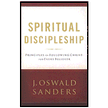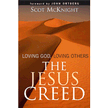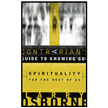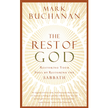Why do I tell you this? I don’t know except to say that I feel I have neglected my worship, my church, and fellowship with my brothers and sisters and ask your forgiveness. I also vow to spend more time with our Father each day; not just learning about Him, but experiencing Him through prayer and devotion.
But, as I said in the beginning, I woke up this morning from the urging of the Holy Spirit telling me to come together as a church body and pray. So this is my calling to all of my church family to join me on Sunday morning in prayer, and again on Wednesday morning before going off to our busy day in the marketplace. The Spirit was very clear to me that this is to be a time of pray for our church as a body.
One thing I have learned during this first semester at seminary, is most of what Jesus taught us in scripture is not for us individually, but rather for us as a body. Over the last century we as believers have taken the words of Christ and the Apostles to be written to us individually; but this is not always the case. Much of what Jesus taught along with what Paul and the other Apostles wrote was meant to be understood as a church, not as individuals. This is part of what we are to fight against, individualism. We are called as Christians to live and serve one another as a body. In the specific instance of the letter to the Ephesians, Paul is telling us as a church to put on the armor of God to protect us from the Evil one. I included it for you here:
"Finally, be strong in the Lord and in the strength of his might. Put on the whole armor of God, that you may be able to stand against the schemes of the devil. For we do not wrestle against flesh and blood, but against the rulers, against the authorities, against the cosmic powers over this present darkness, against the spiritual forces of evil in the heavenly places. Therefore take up the whole armor of God, that you may be able to withstand in the evil day, and having done all, to stand firm. Stand therefore, having fastened on the belt of truth, and having put on the breastplate of righteousness, and, as shoes for your feet, having put on the readiness given by the gospel of peace. In all circumstances take up the shield of faith, with which you can extinguish all the flaming darts of the evil one; and take the helmet of salvation, and the sword of the Spirit, which is the word of God, praying at all times in the Spirit, with all prayer and supplication. To that end keep alert with all perseverance, making supplication for all the saints," (Ephesians 6:10-18, ESV)
There is a perfect illustration of this very thing in the movie “Gladiator”. In the opening scene when the Roman army is about to confront the pagans of old Germany we see the soldiers strapping on their equipment. But when they stand to fight, they stand together interlocking their shields to form an impenetrable wall against the fiery darts, arrows and spears of the enemy. This is exactly the picture Paul writes of in Ephesians. We should all strap on the armor of God, but only when we stand together can we defeat Satan and the fiery darts he throws at us.
So, here’s what I sense God is telling me, and why I am writing this. I will be at Cornerstone at 7 AM on Sunday mornings to pray for our Pastors, our ministry leaders, our Sunday school teachers, and for the people who come to worship with us. I will also be there at 6:30 on Wednesday morning to pray for the same but also for the community of Windsor, and all of the surrounding areas. My intention is not to spend this time praying for each other’s personal needs, but rather for the needs of the body. Having said that, one thing I want to be very intentional of is allowing the Holy Spirit to lead us where he may. I encourage any of you who feel as I do to join with me in this commitment to our church and our Lord.
In His service,
-jim













